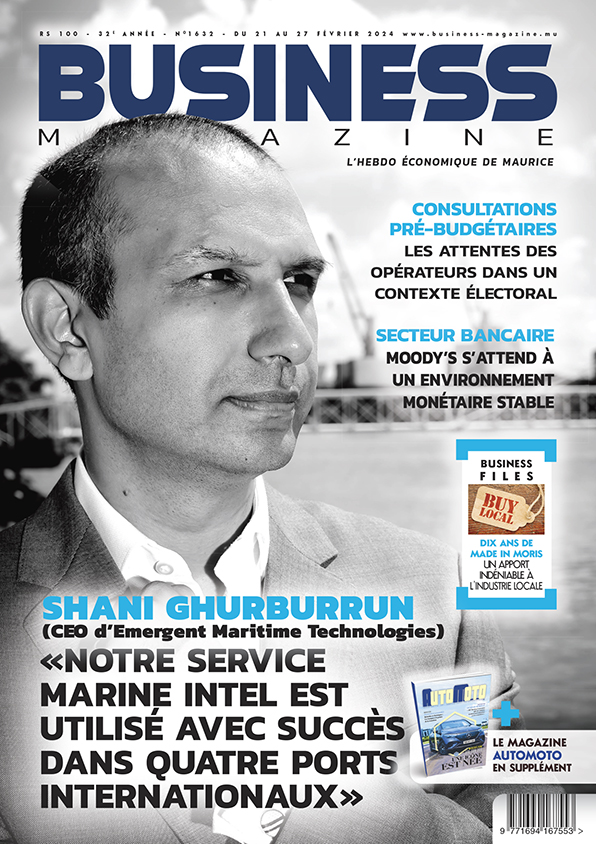Post-Budget Forum 2023 by ACCA in collaboration with MIPA
Share

ACCA organised in collaboration with MIPA a Post-Budget Forum on Monday 5 June 2023 in Ebene. Below are a few key insights from the three panelists, Pierre Dinan, Clensy Appavoo FCCA and Ryaad Owodally FCCA. Pamela Bussier FCCA (CEO of Jubilee Mauritius), was the moderator for the forum. She noted that the government strategies are to maintain economic recovery while transforming Mauritius into a sustainable country and securing GDP growth at 8%, and that there is a reduction of pressure on taxpayers.
Pierre Dinan (economist and consultant)
Broad overview of the National Budget
Looking at the expected outturn of revenue and expenditure for FY 2022-23, and the budgeted revenue and expenditure for 2023/24 (up to 2025/26) helps to grasp the basic characteristics of the economic strategy underlying the Budget proposal for FY 2023/24.
The Budget figures for 2022-23 are: recurrent revenue of Rs 151.2 billion and capital revenue of Rs 2.1 billion. For 2023-2024: recurrent revenue Rs 176.8 billion and capital revenue Rs 2.4 billion. Budgeted expenditure : Rs 214.9 billion in 2022-23 and Rs 227 billion in 2023/24. Overall deficit is hence Rs 61.6 billion in 2022-23 and Rs 39.8 billion in 2023/24. The lower deficit is a welcome improvement. The GDP estimate for the coming financial year is set at Rs 722.9 billion (i.e. : a real growth rate of 8%).
Some four-fifths are expected to be consumed over the coming years. While such rates may not appear excessive, they are an indication of the care to be taken with the management of our foreign reserves, given the particular characteristic of the local economy : the perennial excess of imports over exports. For instance, in 2022, imports amounted to Rs 292.1 million, and exports only Rs105.5 million. For the first quarter of 2023, imports amounted to Rs 65.6 million (i.e.: 2.6 times the level of exports, at Rs 25.1 million).
Such orders of magnitude indicate the seriousness with which international trade figures must be considered, given that adverse movements therein weigh heavily on the regular flow of foreign currency, thus resulting in the depreciation of the local currency, with its negative and painful consequences on, inter alia, inflation. It is regrettable that the Budget speech did not refer to such characteristics of the local economy.
Clensy Appavoo (FCCA). Chief Executive Officer et Senior Partner, HLB Mauritius
Business overview
There are several measures aiming to improve the “doing business” environment, such as the introduction of a unique identification number for companies; the implementation of reforms as recommended by the World Bank, and many amendments to the Occupation and Work Permits to attract more talent and investments in Mauritius.
Our tourism industry would be further consolidated, with the aim of making Mauritius a Green Certified destination by 2030. A series of measures also aim at making us remain at par with the highest levels of international standards in financial services. Several schemes have been renewed to enhance the export sector. Transforming Mauritius into a manufacturing and services hub is another one of the objectives announced in this year’s Budget.
The ’Welfare State’ of Mauritius has been re-enforced with what has been termed “Minimum Guaranteed Revenue” of MUR 15,000 per month; increase in Old Age pension; enhanced subsidies to fishermen; and greater involvement of women in the economy.
The Minister seems to rely on traditional industries to transform the economy and little attention is given to some sectors with growth potential: the Ocean Economy, Port services and optimisation of generative Artificial Intelligence for key industries. Fragmented measures around sustainability are geared towards the reduction of carbon emission, instead of focusing on the challenges in the wake of climate change.
Ryaad Owodally (FCCA), Director International Tax and Transaction Services, EY Mauritius.
Overview of main fiscal changes
The main changes on the income tax proposals announced are : the repeal of the solidarity levy, and the introduction of a progressive tax system as from July 2023. The chargeable income will be subject to 11 slices (0% to 20%). Dividends received by certain resident individuals will no longer be subject to tax.
Various corporate tax incentives have been proposed, including : interest exemption increase from 80% to 95% for Collective Investment Scheme or Closed End Fund; investment tax credit extension to manufacturing companies for another year; double deduction on expenses incurred by manufacturing companies; and double deduction on approved film projects. The scope of the exemption on interest on bonds, debentures or sukuks currently available to renewable energy projects is being widened.
It is not clear whether the products on which VAT has been removed will be exempt or zero rated.
Administrative measures have been provided in the Explanatory Notes (“EN”) to the Budget Speech. The exact implications of some of these measures should be evaluated when the Finance (Miscellaneous Provisions) Bill 2023 (“FMPB 2023”) is issued. According to the EN, the MRA will be allowed to enlist the services of “a suitable expert in a technical field to determine the tax liability of a person.” The scope of this measure requires clarification to ascertain whether taxpayers are not disadvantaged or penalised.
A consultative approach will hopefully be taken once the FMPB 2023 is made available so that the various fiscal measures are implemented in a manner consistent with their object and purpose, and room is not created for subjectivity in the application of the various fiscal laws.

















